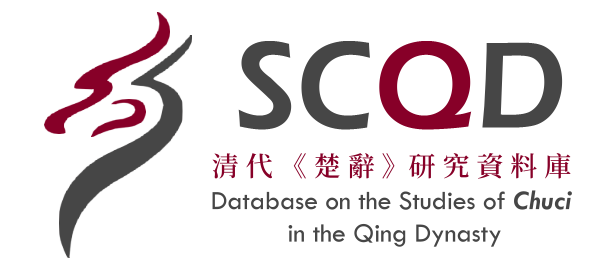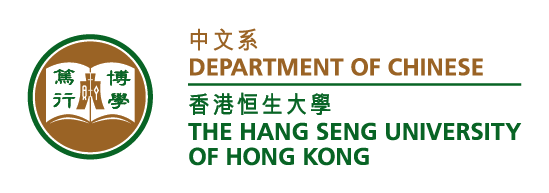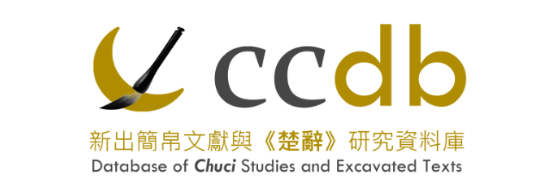清代《楚辭》研究資料庫
Database on the Studies of Chuci in the Qing Dynasty
計劃簡介 Project Background
自西漢時期,《楚辭》已成爲人們研究的重點對象,在中國文學史上具有崇高的地位。傳統的《楚辭》研究一般以傳世文獻為主,運用文字、聲韻和訓詁等方法探求文義和文學特色。現代學者在繼承傳統的考證方法之餘,同時致力於楚辭學術史的整理。清代的楚辭學上承前代研究的餘緒,同時受到當時學術傳統以及近代思想文化的影響,在不同範疇均取得令人矚目的成就。據本文初步收集所得,清代楚辭學著作超過二百多種,數量遠多於明代一倍有多,無論在宏觀或微觀層面的研究,其影響一直延續至今,在楚辭學史上具有承先啟後的地位。清代楚辭學著作數量十分龐大,分散在各處,不易於獲取。本計劃建立「清代《楚辭》研究資料庫」,旨在提供楚辭學著作目錄、題跋、提要、以及研究論著書目等多元化訊息,以供使用者檢索和應用。本資料庫之建立,實有賴於香港特別行政區大學教育資助委員會發展計劃撥款資助(項目編號:UGC/FDS14/H02/20),謹此致謝。
Since the Western Han dynasty, the Chuci (the Songs of the South) has become a major focus of research. It is of crucial significance in the history of Chinese literature. In the pre-modern era, the study of Chuci was generally conducted based on transmitted texts. Findings in philology, phonology and exegetical methods were incorporated in order to explore the meaning and literary features of the text. Modern scholars, while inheriting the traditional methods of textual research, are also committed to sorting out the reception history of Chuci. While Chuci studies in the Qing dynasty built upon the research foundation of previous generations, it was also influenced by the modern intellectual and cultural trends of the time, achieving remarkable accomplishments in various areas. According to the preliminary data collected, there are more than 200 items composed on Chuci in the Qing dynasty, more than twice the number in the Ming dynasty. The study of Chuci at this juncture is significant both from a macro or micro level, and its influence has continued to this day, occupying an important position in the history of Chuci studies, bridging the past and future.
The enormous amount of texts related to Chuci studies from the Qing dynasty are scattered in various places, making them difficult to access. This project aims to establish a ‘Database on the Studies of Chuci in the Qing Dynasty’ to provide a diverse range of information, including catalogs of Chuci studies, prefaces and postscripts, critical abstracts, and bibliographies of research papers, to facilitate users’ consultation and research. The development of this website is funded by the Faculty Development Scheme of the University Grants Committee of the Hong Kong SAR (UGC/FDS14/H02/20). We would like to take this opportunity to thank them for their generous support.





